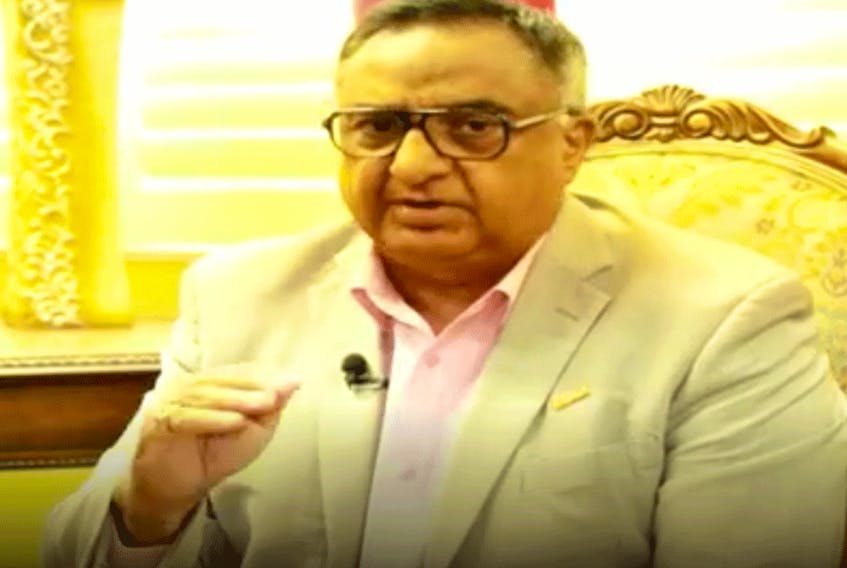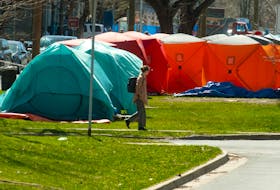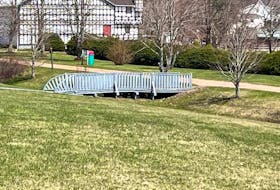South Asia-related politics is again causing turbulence for the Liberal government, as one of its own MPs charges that his party has been “pandering” to Sikh separatists, threatening Canada’s relations with India in the process.
Ramesh Sangha, who represents Ontario’s Brampton Centre riding, delivered the surprising critique of his caucus colleagues during a recent Punjabi-language television interview. His comments revive an issue that has been an irritant for Prime Minister Justin Trudeau for more than two years, flaring up during his ill-fated tour of India last year.
Indian officials have previously accused the Liberals of trying to win favour with Canadians pushing for an independent Sikh homeland — known as Khalistan — in the Punjab region of India. Punjab’s state governor even charged that Trudeau’s four Sikh cabinet ministers are Khalistanis. They have strenuously denied the accusation.
It is less expected to hear such complaints from a member of the government itself — two months before a federal election.
“There is no doubt, there cannot be two opinions that the Liberal party is pandering (to) Khalistan supporters,” Sangha said in the interview on 5AAB, a Punjabi-language channel based in Mississauga, Ont. “One thing is for sure, when we raise this issue, it will raise an anti-India slogan or demand the division of India on some ground. In that, ultimately our relations, the Canada-India relationship will certainly develop cracks.”
The interviewer asked if he thought the party had a “soft corner” for Khalistanis. “It does,” he responded.
But Sangha seemed to place the blame on those Sikh Canadian cabinet ministers and other MPs, noting that Trudeau himself has made clear he supports the status quo in India.
“(The prime minister) said in strong words that we don’t want a divided India, we want a united India and we will work for that,” said the MP. “Sikh ministers, MPs of our Sikh brotherhood, these brothers of mine, they have their own … These are their own views and as long as they demand it, it is viewed that they are separatists. When this view surfaces, India also voices its hard view.”
He said his observations were not based on being friends with Capt. Amarinder Singh, the Punjab state governor, but stemmed from his role with a Canada-India parliamentary association.
“I have observed this issue very closely,” Sangha said.
The MP, a lawyer serving his first term in Parliament, could not be reached for further comment Monday.
A statement from Trudeau’s office did not address Sangha’s remarks directly, but firmly denied the government was sympathetic to the Khalistani movement.
“Canada’s position on a united India is unwavering and we are unanimous as a government on this issue,” said the statement. “Canadians have the right to freedom of expression and speech and they have the right to peacefully express their views.”
Sikh-Indian tensions have played an over-sized role in Canadian politics in recent years, thanks in part to the large concentrations of electorally active Sikh-Canadians in several swing ridings in Ontario, B.C. and Alberta. Almost all those constituencies voted Liberal in the 2015 election.
The government of Indian Prime Minister Narendra Modi has voiced concern previously about Trudeau and other Liberals appearing at Sikh-community gatherings that also featured tributes to alleged terrorists, and objected to a 2017 resolution passed by the then Liberal-dominated Ontario legislature that declared a 1984 massacre of Sikhs in India a “genocide.”
Singh, the governor of Punjab, fanned the flames further when he alleged the same year that the four Sikh-Canadian cabinet members were Khalistanis, and refused to meet with one of them, Defence Minister Harjit Sajjan.
Singh did sit down with Sajjan and Trudeau on the prime minister’s state visit to India in February 2018, voicing satisfaction at their strong rejection of the separatist movement.
But the issue caused the Liberals more trouble on that trip when it came to light that a convicted Sikh terrorist, Jaspal Atwal, had been invited to two official functions, including one where he was photographed with Sophie Gregoire Trudeau, the prime minister’s wife.
And yet, government attempts to get tough on alleged Sikh extremists have also proven politically tricky for the Liberals.
The latest edition of an annual Public Safety Canada report on terrorism released in December 2018 mentioned Sikh extremism for the first time, sparking outrage among community leaders who felt the citation tarred the religion as a whole. The report’s wording was later changed to talk about unspecified separatist movements in India.
Punjab governor Singh, in turn, criticized that change, and later accused Canada of “covertly and overtly” supporting Sikh extremists, suggesting India might need to pursue sanctions against this country.
Copyright Postmedia Network Inc., 2019









